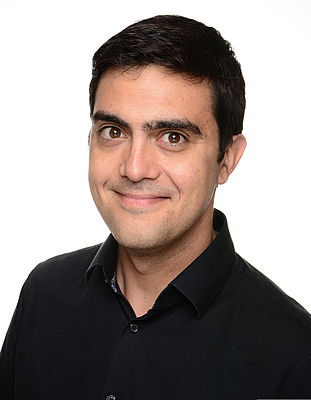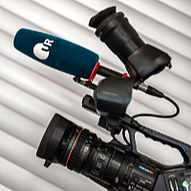Walter Schottky Prize awarded to Dr Nicola Paradiso
Renowned DPG prize goes to a physicist from the University of Regensburg for the second year in a row
13. Dec 2023
The Walter Schottky Prize for 2024 has been awarded to Dr Nicola Paradiso, researcher at the Faculty of Physics at the University of Regensburg. The Walter Schottky Prize of the German Physical Society (DPG) honours outstanding work published in the last two years by one or more young physicists in the field of solid-state research. Dr Paradiso receives the prize "for his experimental discovery and characterisation of rectified supercurrents in Josephson junctions. His fundamental work on the Josephson diode effect opens up new perspectives for superconducting quantum electronics", as stated in the DPG's laudation.
https://www.dpg-physik.de/auszeichnungen/dpg-preise/walter-schottky-preis/preistraeger
Dr Paradiso is the second Regensburg researcher in a row (and the third in the past four years) to receive the prestigious prize of the German Physical Society, after it was awarded last year to Dr Kai-Qiang Lin from the research group of Prof. Dr John Lupton and in 2021 to Dr Andreas Hüttel from the research group of Prof. Dr Christoph Strunk. The award will be presented in March 2024 during the DPG Annual Meeting in Berlin.
About the work of Dr Paradiso
The diode was the key element of the first transistor and is still a fundamental piece of modern electronics. In short, a diode allows electric current to flow in one direction only and impedes it in the opposite direction. Doing the same with a superconductor is more challenging because for (super)currents, time-reversal symmetry guarantees equivalence of current flow in both directions. Local cancellation of time-reversal symmetry requires the application of magnetic fields to superconductors with special properties. Working on semiconductor-superconductor structures fabricated at Purdue University, Dr Paradiso and his collaborators have demonstrated for the first time the superconducting diode effect in Josephson junctions, along with other closely related phenomena.
Superconducting diodes are interesting for two main reasons. In the long term, they could become key elements in future energy-efficient, lossless superconductor-based electronics. In the short term, they could play a role in quantum computers. In fact, superconductors have so far been the platforms for practical quantum computers (such as Google's Sycamore). This means that currently the qubits used in real-world applications are based on superconducting circuits. In such circuits, superconducting diodes could play an important role. In fact, there are already several theoretical proposals to integrate the recently discovered superconducting diodes into current quantum computers.
"Dr Paradiso was a driving force behind our experiments and, in addition to his work in the laboratory, has also significantly advanced the interpretation and modelling of the measurement data. He also made essential contributions to the development of the technology that made the award-winning work possible," explains Prof. Dr Christoph Strunk, Chair of Experimental and Applied Physics at the University of Regensburg.
Research Group Prof. Dr Strunk
About Dr Nicola Paradiso
Dr Paradiso began his scientific career at the Scuola Normale in Pisa, where he obtained his PhD. In Pisa, he studied the spatial and energetic structure of edge channels in the quantum Hall regime using scanning tunnelling microscopy methods. He then moved to Regensburg as a postdoctoral researcher in the group of Prof. Dr Christoph Strunk. Since 2020, he has been a permanent researcher at the University of Regensburg, where he is currently completing his habilitation. He is Principal Investigator (PI) of three research projects in as many scientific consortia: the SFB1277 project funded by the German Research Foundation, the Quantum e-leaps project and the JOGATE project, both funded by the European Union (Horizon Initiative).
Original scientific publications on the superconducting diode effect:
Nature Nanotechnology, 17, 39-44 (2022). https://www.nature.com/articles/s41565-021-01009-9
Preprint version https://arxiv.org/abs/2103.06984
Nature Nanotechnology, 18, 1266-1272 (2023). https://www.nature.com/articles/s41565-023-01451-x
Preprint version https://arxiv.org/abs/2212.13460
Nature Communications, 13, 4266 (2022). https://www.nature.com/articles/s41467-022-31954-5

Dr. Nicola Paradiso © Paradiso
Information/Contact
Dr Nicola Paradiso
Institute for Experimental and Applied Physics
University of Regensburg
Research Group Prof. Dr Christoph Strunk
Phone: +49 (0)941 943 1614
E-mail: Nicola.Paradiso@physik.uni-regensburg.de




